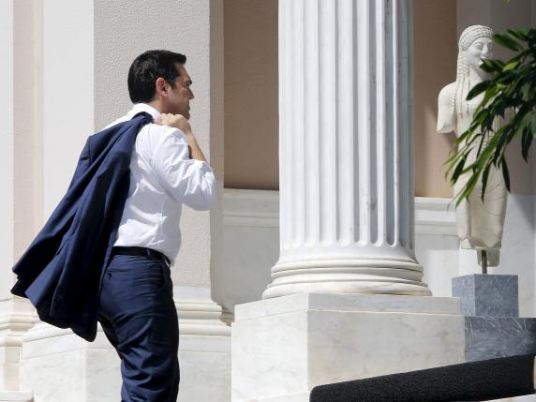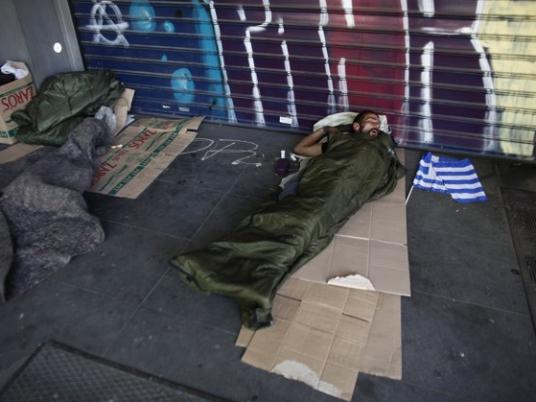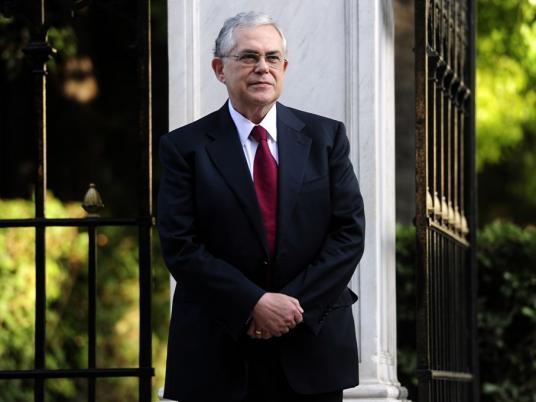
Greece's top Supreme Court judge was sworn in as caretaker prime minister on Thursday to lead the country to elections next month, ending a week of political deadlock after leftist leader Alexis Tsipras resigned.
Vassiliki Thanou, an opponent of austerity who has argued against wage cuts for judges and court officials, and her new interim government will remain in place at least until parliamentary elections are held, expected to be on Sept. 20.
"I'm especially happy because I'm receiving the first woman prime minister in the history of the Greek democracy, and this is an important step," Tsipras told Thanou at a handover ceremony at the prime ministerial mansion.
Her appointment ends a week of fruitless negotiations as top opposition party leaders took turns at trying to form a government, exercising a constitutional right that takes effect if a prime minister resigns within a year of being elected.
The process dragged on for a week as the main conservative opposition and then the far-left Popular Unity party both used their allotted three days in full despite having no chance of success, hoping to delay the election.
The conservatives said everything had to be done to avoid a new round of elections that Greece did not need. The country has to implement a new round of austerity measures and reforms agreed with its creditors as part of its 86 billion-euro bailout, and also deal with an unprecedented inflow of migrants.
"The caretaker government's duties are mainly holding the elections in a fair and smooth fashion. Given the circumstances, however, I believe this government will be called upon to tackle critical issues such as, for example, the immigration issue, and, maybe, some others," Thanou told Tsipras at the handover ceremony.
The names of Thanou's ministers will be officially announced on Friday. Greek media said the role of interim finance minister would go to George Chouliarakis, a senior official in Greece's debt negotiating team.
Popular Unity leader Panagiotis Lafazanis – whose rebel far-left faction broke away from Tsipras's Syriza party last week, taking a sixth of its lawmakers with him – used his three days to air his anti-bailout message before handing back the mandate on Thursday.
Tsipras remains hugely popular in Greece despite making a U-turn to accept the bailout programme, and opposition parties feel a longer campaign period offers a better chance of denting his popularity as austerity cuts start kicking in.
NO COOPERATION
Syriza is expected to once again emerge as the biggest party in parliament when the snap election is held. But Tsipras is not expected to secure an absolute majority, forcing him to find a coalition partner, failing which a second round of elections could be held.
In an interview with Alpha TV on Wednesday, Tsipras stood by previous comments that his party would not cooperate with New Democracy and the Socialist PASOK, which took turns ruling Greece for decades before Syriza swept to power this year.
He also ruled out a tie-up with the new, centrist and strongly pro-euro To Potami party, effectively making his current coalition partner – the right-wing Independent Greeks – his only potential ally.
"Our differences are very significant," Tsipras said. "I believe all these three parties express the old party system. Certainly, I will not be the prime minister."
The comments prompted criticism from opposition figures on Thursday, who accused Tsipras of blackmailing voters with the dilemma of either choosing him or facing a political deadlock.
"Yesterday Mr. Tsipras made a huge provocation, saying to citizens whatever you vote I will not cooperate," Stavros Theodorakis, leader of To Potami, told Mega TV.
"In other words what? Elections again in October, if the Independent Greeks do not make it to parliament?"


